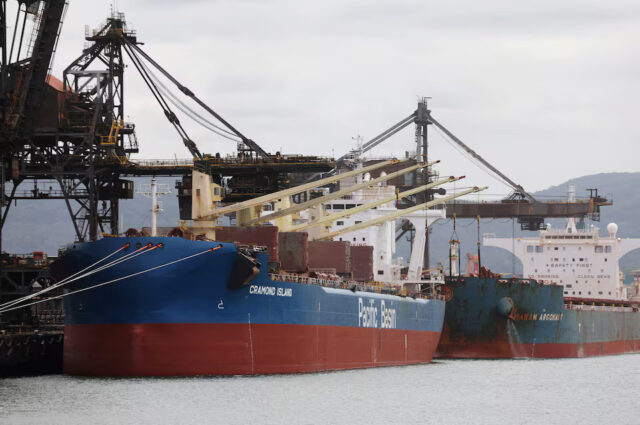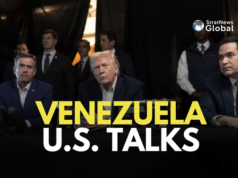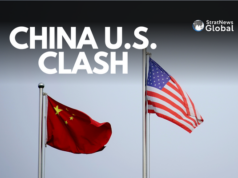
Following a phone call with Prime Minister Anthony Albanese, U.S. President Donald Trump agreed to consider exempting Australia from his steel and aluminium tariffs, citing the country’s trade surplus with the United States.
Trump substantially raised tariffs on steel and aluminium imports on Monday, cancelling exemptions and duty-free quotas for major suppliers in a move that could boost the risk of a multi-front trade war.
His action reinstated a 25% tariff on millions of tons of steel and aluminium imports that had been entering the U.S. duty free under quota deals, exemptions and thousands of product exclusions.
Surplus To The Rescue
In the phone call with Trump, Albanese said he had presented Australia’s case for an exemption.
After telling reporters there would be no exemptions, Trump noted Australia was one of the few countries with which the United States had a trade surplus, following the call with Albanese.
“We have a surplus with Australia. One of the few. And the reason is they buy a lot of airplanes. They’re rather far away and they need lots of airplanes,” Trump said.
“I told him that that’s something that we’ll give great consideration to,” the Republican president told reporters in the Oval Office, adding that Albanese was a “very fine man”.
A key U.S. security ally in the Indo-Pacific, Australia is a small global exporter of steel although it is world’s largest exporter of the main steelmaking raw material iron ore.
Australia accounted for 1% of steel imports into the U.S. and 2% of its aluminium imports, Albanese said.
“We agreed on wording to say publicly which is that the U.S. president agreed that an exemption was under consideration,” Albanese told reporters on Tuesday.
“But we’ll continue to engage quite clearly constructively … it was a very constructive and warm discussion again with President Trump.”
Confident Of A Deal
Trump, during his first term as U.S. President, exempted Australia from U.S. tariffs on steel and aluminium.
The country’s trade minister on Monday said those exports created “good-paying American jobs” and were key to shared defence interests. Australian-processed steel was purchased by the largest U.S. military shipbuilder as Australia, Britain and the U.S. – partners of the AUKUS defence pact – seek to integrate defence supply chains, the Australian government said last year.
Albanese said he remained confident a deal could be reached with Trump.
“If you have a look at what we’ve achieved already, it’s been a tremendous start to the relationship,” Albanese said.
Foreign Minister Penny Wong attended Trump’s inauguration, while Defence Minister Richard Marles met U.S. Defense Secretary Pete Hegseth in Washington last week, Hegseth’s first meeting with a foreign counterpart after being confirmed in the role.
Australia’s Aluminium Council said it was still working to understand the impact of any potential tariffs on Australia’s aluminium trade.
($1 = 1.5946 Australian dollars)
(With inputs from Reuters)




